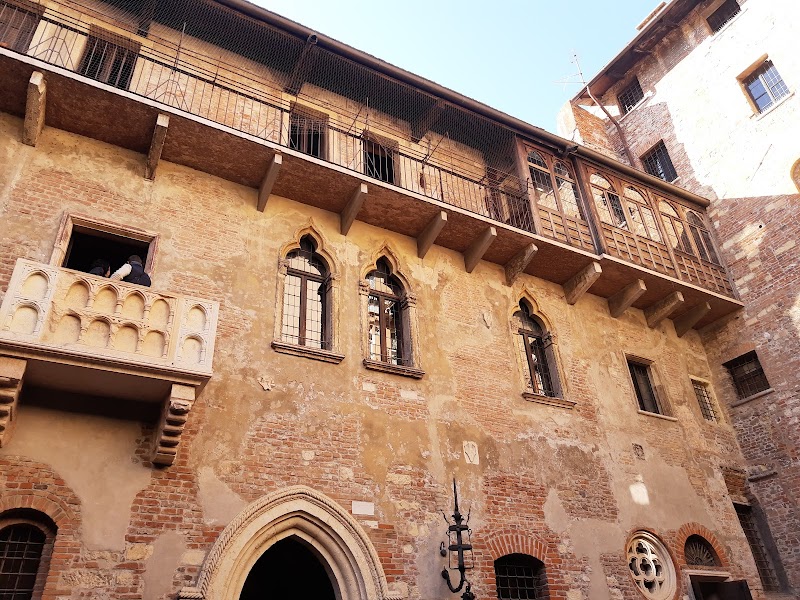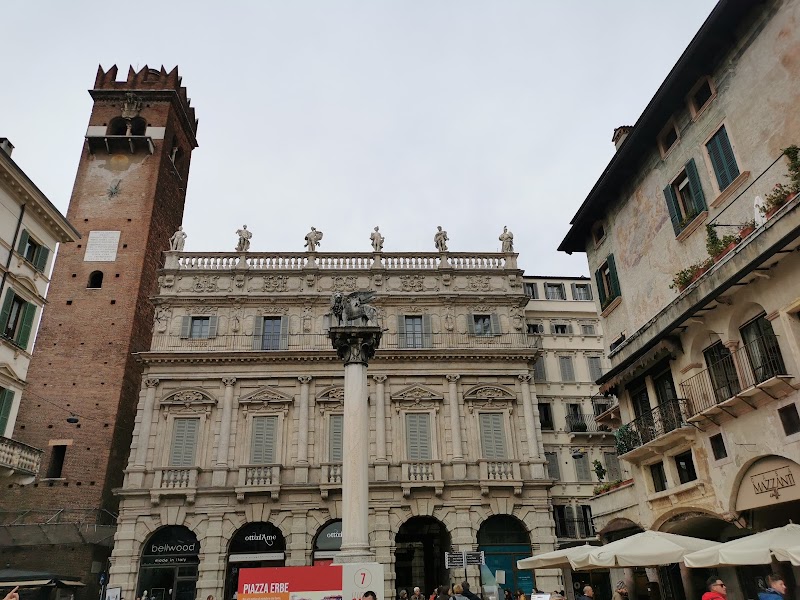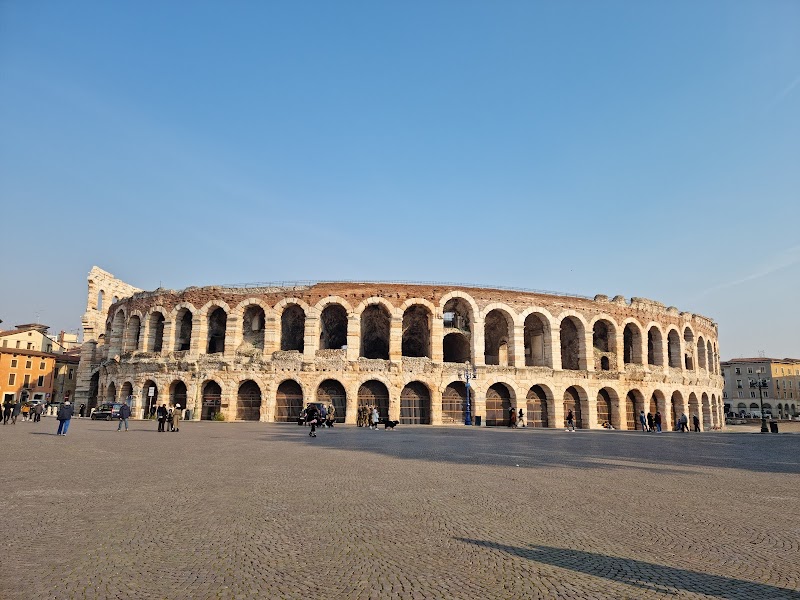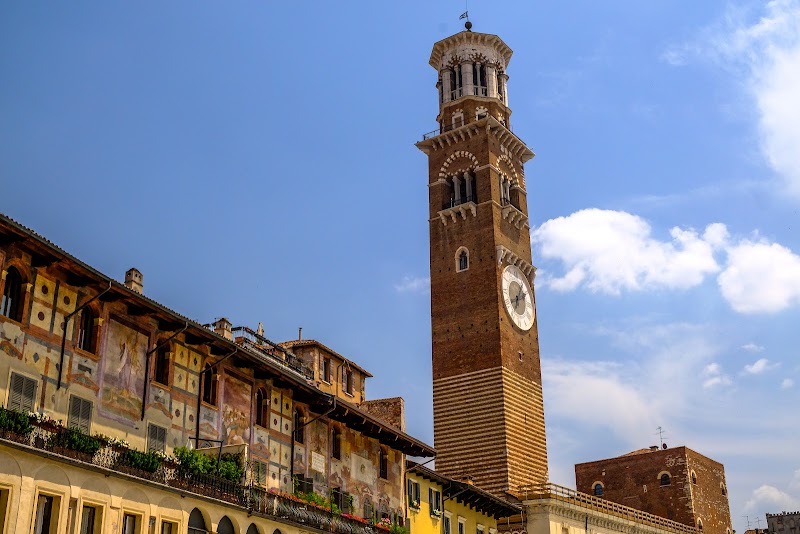Welcome to Verona
Did you know that Verona, the city of love and romance, welcomes over 3 million tourists each year? Its enchanting old-town charm, the world-renowned Arena, and the legendary Juliet's Balcony are just a glimpse of what awaits you in this beguiling Italian city. Overflowing with history, culture, and delectable cuisine, Verona offers an extraordinary and unforgettable travel journey. For those planning to explore other destinations in Italy, you might want to check out the tourist map of Italy.
Organizing your Verona escapade has never been more straightforward with our all-inclusive tourist map of Veneto. This essential tool will navigate you through the city's winding streets, unveiling hidden treasures and must-visit landmarks. It's not merely a guide—it's your key to discovering the essence and spirit of Verona.
" Booking.comExploring the Unique Attractions of Verona
When plunging into the heart of Verona, one is quickly swept away by the city's unparalleled blend of history, romance, and art. Each street, each plaza, each monument holds a tale waiting to be unearthed. This is a city that encourages you to lose yourself in its enchanting corners and secret spots.
Unfolding the History of Verona
In Verona, history is not confined to the pages of a dusty book. Instead, it is etched in the city's stone facades and whispered through the cobbled streets. Take the city's ancient Roman gates, Porta Borsari and Porta Leoni, for instance. They not only served as entrances to the city during the Roman era but also as defensive structures. Today, they stand as silent witnesses to Verona's vibrant past. Imagine the bustling markets and lively festivals that once took place within these walls.
For a deeper dive into Verona's rich heritage, the Archaeological Museum at the Roman Theatre is a treasure trove of artifacts and exhibits. Located on the banks of the Adige River, the museum offers an educational and immersive experience, taking you back to the city's ancient roots. The nearby tourist map of Rome can guide you to other historical landmarks in the vicinity.
Capturing the Artistic Spirit of Verona
Verona's artistic flair is not just confined to the city's architecture. Art is alive and vibrant in this city, breathing life into the streets and squares. The Verona Fresco Museum, housed in the former Monastery of San Francesco al Corso, displays a vibrant collection of frescoes dating back to the Middle Ages, making it a must-visit for art enthusiasts.
Another artistic gem is the Modern Art Gallery Achille Forti. Its eclectic collection of modern and contemporary art provides a fascinating contrast to the city's historical sites. As you walk through the gallery, witness how Verona's art scene has transformed over the centuries, reflecting the changing times and the city's enduring spirit.
Experiencing the Lively Atmosphere of Verona's Squares
No visit to Verona is complete without experiencing the lively atmosphere of its squares. Piazza dei Signori, with its majestic statues and historic buildings, exudes a timeless charm. This square, also known as Dante's Square, is often considered the heart of Verona's cultural and social life.
Just a short stroll away is Piazza delle Erbe, the city's oldest square. Its vibrant market, charming cafes, and stunning frescoes all contribute to its lively ambience. As you wander around, soak in the hustle and bustle of everyday life in Verona, capturing the city's unique blend of tradition and modernity.

Practical Information for Verona
Transportation and Mobility
Navigating around Verona is a breeze, thanks to its efficient and comprehensive public transportation system. Buses are the primary mode of public transport, with routes covering the entire city and its surrounding areas. Verona also boasts an extensive network of bike lanes, making cycling a suitable choice for exploring the city. Taxis are readily available but tend to be more costly. If you're planning a day trip outside the city, the Verona Porta Nuova railway station offers regular connections to other Italian cities. You might also want to consider exploring other Italian cities. Check out the tourist map of Italy for more details.
Schedules and Prices
Bus service in Verona typically begins around 6 a.m. and runs until midnight, with night buses operating on select routes. A standard single bus ticket costs €1.30 if purchased in advance or €2.00 if bought on board. For frequent travelers, a 90 minutes ticket, daily, or weekly pass might be more economical. Most museums and attractions in Verona open around 8:30 a.m. and close between 7:30 and 8:30 p.m., with entry fees ranging from €6 to €12. Always check the official websites for the most up-to-date information.
Safety Tips
Verona is generally a safe city to visit, but like anywhere else, it's important to stay vigilant. Avoid carrying large amounts of cash or flashing expensive jewelry, especially in crowded areas where pickpockets might be operating. Use common sense when navigating the city at night, sticking to well-lit areas and avoiding deserted lanes. Emergency services can be reached by dialing 112.
Practical Recommendations
The best time to visit Verona is during the spring and autumn months, when the weather is mild and the city is less crowded. Remember to pack comfortable shoes as Verona's historic center is best explored on foot. Also, keep in mind that many businesses and shops in Verona close for a few hours in the afternoon for riposo, Italy's version of a siesta. Plan your day accordingly to make the most of your visit.

Frequently Asked Questions
1. What are some unique outdoor experiences in Verona?
In addition to the city's rich history and culture, Verona offers several outdoor adventures that are truly unique. You can stroll through the beautifully landscaped Giardino Giusti, with its stunning views over the city or go bird-watching in the tranquil Parco delle Colombare. For a more active pursuit, consider hiking up to the Sanctuary of Madonna della Corona, built into the side of a cliff and offering breathtaking views of the surrounding valleys.
2. What are some specific etiquettes or cultural norms I should know before visiting Verona?
Veronese people are known for their warmth and hospitality, but it's essential to respect local customs and traditions. Dress modestly when visiting religious sites, always say 'Buongiorno' (Good day) or 'Buonasera' (Good evening) when entering small shops or restaurants, and remember that the afternoon riposo is widely observed, so many stores may close during this time.
3. Is English widely spoken in Verona?
While Italian is the official language, you'll find that many Veronese locals, especially in the city center and tourist areas, speak English. However, learning a few basic Italian phrases will be appreciated and can enhance your travel experience.
4. Is Verona a child-friendly destination?
Yes, Verona is a great city to visit with children. There are several parks and playgrounds, such as Parco dell'Adige Sud and Parco Sigurtà, where kids can run around. Additionally, attractions like the Verona Natural History Museum and the Torre dei Lamberti, with its panoramic city views, are sure to keep them entertained.
5. Are there any must-try local dishes in Verona?
Verona's gastronomy is a delightful journey of flavors. Risotto al tastasal, a creamy rice dish made with local sausage, and pandoro, a sweet, golden bread typically enjoyed during the Christmas season, are two must-try local dishes.
6. How can I best navigate the city if I have mobility issues?
Many of Verona's attractions are located in the city center, which is relatively flat and walkable. However, for those with mobility issues, the city offers accessible public transportation options, including low-floor buses and taxis equipped for wheelchair users. Some of the city's main attractions, like Juliet's House and the Arena, also have provisions to accommodate visitors with disabilities. It's advisable to contact the venues in advance to ensure a smooth visit.


